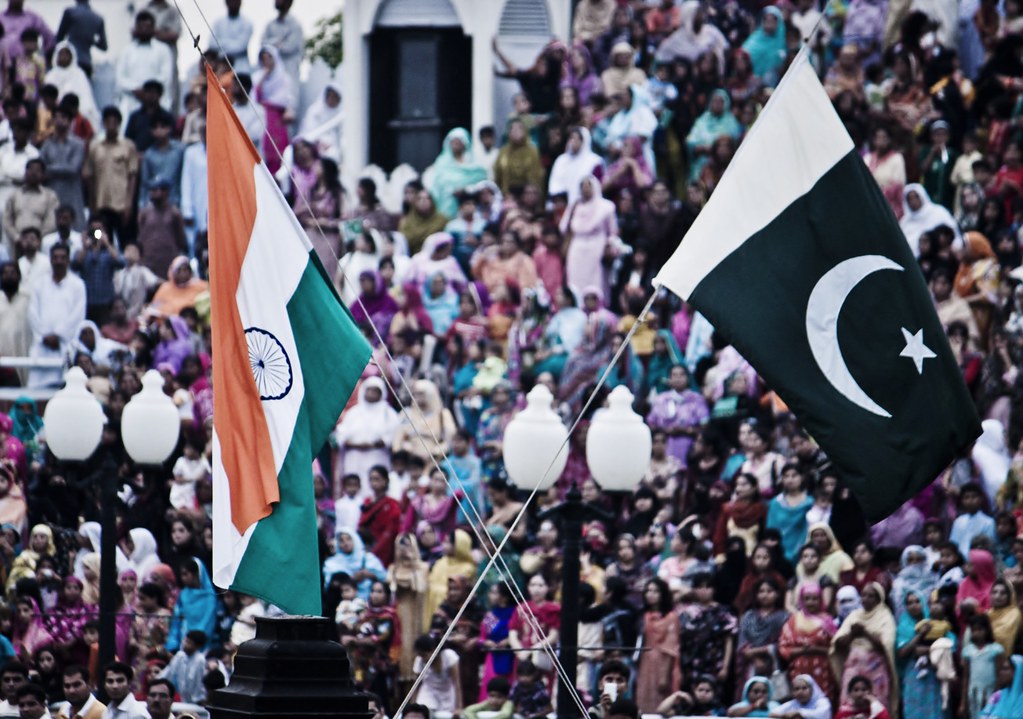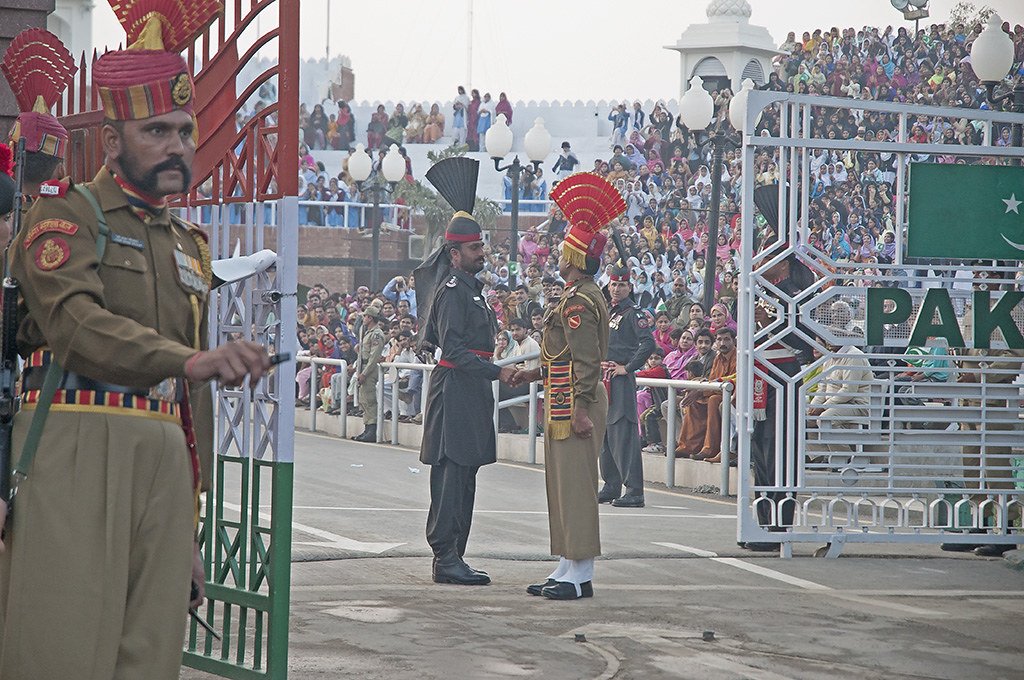MUMBAI ATTACK ON NOVEMBER 26-29: REFLECTION OF GLOBAL TERRORISM ON RELATIONS BETWEEN PAKISTAN AND INDIA
Terrorism is an example of violence. Violence is a situation that is realized through equations that can be established between individuals, states and groups. Violence manifests itself in the form of hate speech, individual terror, lynching, rioting, rebellion, resistance, terror and war. Based on this explanation, it can be seen that terrorism will occur individually and as a group. Terrorism, which can take place between groups and internationally, is a sub-branch of international relations that can be seen many examples and studies in the international arena. In one of his studies, Prof. Dr. Ergil discusses terrorism as an example of low-tension warfare. In other words, we can consider it as a set of aggressive and unprepared attacks against a state or another group by a group that cannot bear the material and moral burden of war. While there are many different definitions of terrorism, the definition that most closely resembles the activities of Lashkar al-Tayyibe, which I will discuss in this study, was used. When we examine the Global Terrorism Indices (2017-2022), it is seen that Afghanistan ranks first, Pakistan ranks sixth and India ranks thirteenth among the states where Lashkar-e-Tayyibah (LET) operates. On the other hand, if we examine the years 2006-2011 for 2008 and onwards, which is the main focus of this article, we see that Pakistan ranks second, Afghanistan ranks third and India ranks fourth. The main purpose of this article is to find an answer to the question: “Is there a connection between the drop in the Global Terrorism Index list of Pakistan and India, especially after the 2008 attack by Lashkar-e-Tayyibeh in Mumbai, India, in which 164 people were killed and 308 injured?”
“THE TUG OF WAR BETWEEN TWO NUCLEAR POWERS; PAKISTAN AND INDIA”
Pakistan and India, which are not currently at active war, have repeatedly been on the brink of war since August 14, 1947, the year of Pakistan’s founding, although tensions between the two countries are often reflected in terrorist incidents. The 2008 terrorist attack by Lashkar-e-Tayyibeh in Mumbai, India, was precisely one of these triggering events. The Independence of Pakistan in 1947 is also known as the date of the partition of the colonial “British India” into India and Pakistan. Since then, the conflicts between Pakistan and India have been reflected in the international arena as a conflict between the two states. After its independence, Pakistan became an Islamic Republic in 1956 due to internal turmoil and then went through several civil wars. These internal turmoil resulted in the separation of Bangladesh from Pakistan. The turmoil in Pakistan, which claims that it has been struggling to “become an Islamic State” in Asia, the region it has been in since its independence, has also been reflected in terrorist attacks between the two countries. While India blamed some terrorist organizations based in Pakistan for the attacks on the country and expected Pakistan to impose sanctions, the situation was similar on the Pakistani side.

“THE JIHAD WAS CARRIED OUT BECAUSE THE SPREAD OF ISLAM IS A COMMANDMENT OF GOD…”
Lashkar-e-Tayyiba was founded in 1987 by Hafiz Saeed, who is referred to as its leader. In addition to Hafiz Saeed, it is claimed to have been founded by Muhammad Iqbal and Abdullah Azzam. Muhammad Iqbal’s inaugural speech at the inauguration of the All India Muslim League in Allahabad in 1930, in which he first mentioned the need for an independent state for Muslims in the region, shows that Iqbal was a pioneer in the establishment of Pakistan. The “Lashkar-e-Tayyibah” aims to carry out jihad, to preach the religion loudly and to follow Islamic rules, since the spread of Islam is a commandment of Allah. It aims to annex Kashmir to Pakistan, which President Arif Alvi, on its 76th Independence Day, called “Jammu Kashmir, a repressed state that has been subjected to Indian oppression for decades”. On the other hand, the people of Kashmir have not reached a consensus on annexation to Pakistan. A majority of the people support independence. The fact that Pakistan and Lashkar-e-Tayyibah share a common interest on this issue supports the claims that Pakistan supports Lashkar-e-Tayyibah in the region.
Hafiz Saeed, who has been under the influence of Wahhabism, is the biggest indicator of the organization’s aggressiveness in terrorist acts with the aggressiveness and directiveness in his speeches. In addition, many other allegations have been put forward. The most prominent of these, and the one supported by India, is that the Pakistani Intelligence Service played a major role in the establishment and development of the organization. This claim is very dangerous for a state that calls itself the “Islamic Republic of Pakistan” in the international arena.
The organization was officially banned in Pakistan in 2001 under pressure after it was blamed for the attack on the Indian parliament in Delhi. The organization later re-emerged under the name Jamaat-e-Jamaat-ud-Dawa (JUD), but after the Mumbai attacks in 2008, the subject of this article, it was banned with more severe sanctions and its leader Hafiz Saeed was placed under house arrest.
“MUMBAI, THE CITY OF CONTRASTS”
Mumbai, the capital of the state of Maharashtra, is a city of contrasts in the southern region of India. Mumbai Port is the largest port in India. In a sense, this city represents India’s independence because the Gate of India, the symbol of India’s independence, is located in this city. For this reason, especially the terrorist attacks in this region and the concentration of terrorist attacks in this region show the importance of Mumbai in this sense of independence.
The attacks carried out by Lashkar-e-Tayyibeh in Mumbai on November 26-29, 2008 drew international attention and raised tensions between India and Pakistan to the highest level. These acts were large-scale and multi-targeted terrorist attacks. These multi-targeted attacks were carried out simultaneously at Chhatrapati Shivaji Terminus railway station, Taj Mahal Palace Hotel, Oberoi Trident Hotel, Leopold Cafe, Nariman House and Cama Hospital. In the Leopold Cafe, bullet marks still on the wall are presented to tourists through a glass case. Immediately after the attacks, India called the attack Pakistan-linked and Islamabad expressed its strong disapproval of the attack, as it had done in the 2001 attacks. This time it used the image of a “common enemy” and offered full cooperation in the ongoing investigation. Although an organization called the Deccan Mujahideen claimed responsibility for the attacks, the fact that the Indian government blamed the Islamabad government and Lashkar-e-Tayyibah for the attacks has put international pressure on Islamabad. The fact that the Pakistani government banned the organization again in 2008 due to the Mumbai attacks and placed its leader Hafiz Saeed under house arrest was publicized as an indication that Lashkar-e-Tayyibah played a role in the attack.
Ten attackers captured by India in the attack were identified as members of Lashkar-e-Tayyiba. Muhammad Ajmal Kasab, a member of the terrorist organization who was captured alive, was executed in India in November 2012.
“THERE IS A CLEAR INTERNATIONAL CONSENSUS THAT SAED IS GUILTY. UNITED NATIONS SECURITY COUNCIL RESOLUTION 1267 OF DECEMBER 2008…”
Following the 2008 Mumbai terrorist attacks, Lashkar-e-Tayyibah was not only banned by Pakistan but was also fully listed as a terrorist organization internationally. This includes the United States, which designated it a Specially Designated Global Terrorist and Foreign Terrorist Organization by the US State Department in 2001. The US statement reads “There is a clear international consensus that Said is guilty. He was sanctioned in December 2008 under United Nations Security Council Resolution 1267.” In addition, Interpol issued a red notice in 2009 for Hafez Said, the leader of the Dawa Jamaat, the political arm of Lashkar-e-Tayyiba.
After these attacks by Lashkar-e-Tayyiba in 2008, the organization’s attacks have decreased remarkably with the measures taken. The last time the organization made a name for itself was the attack in Mumbai in 2008.




Comments